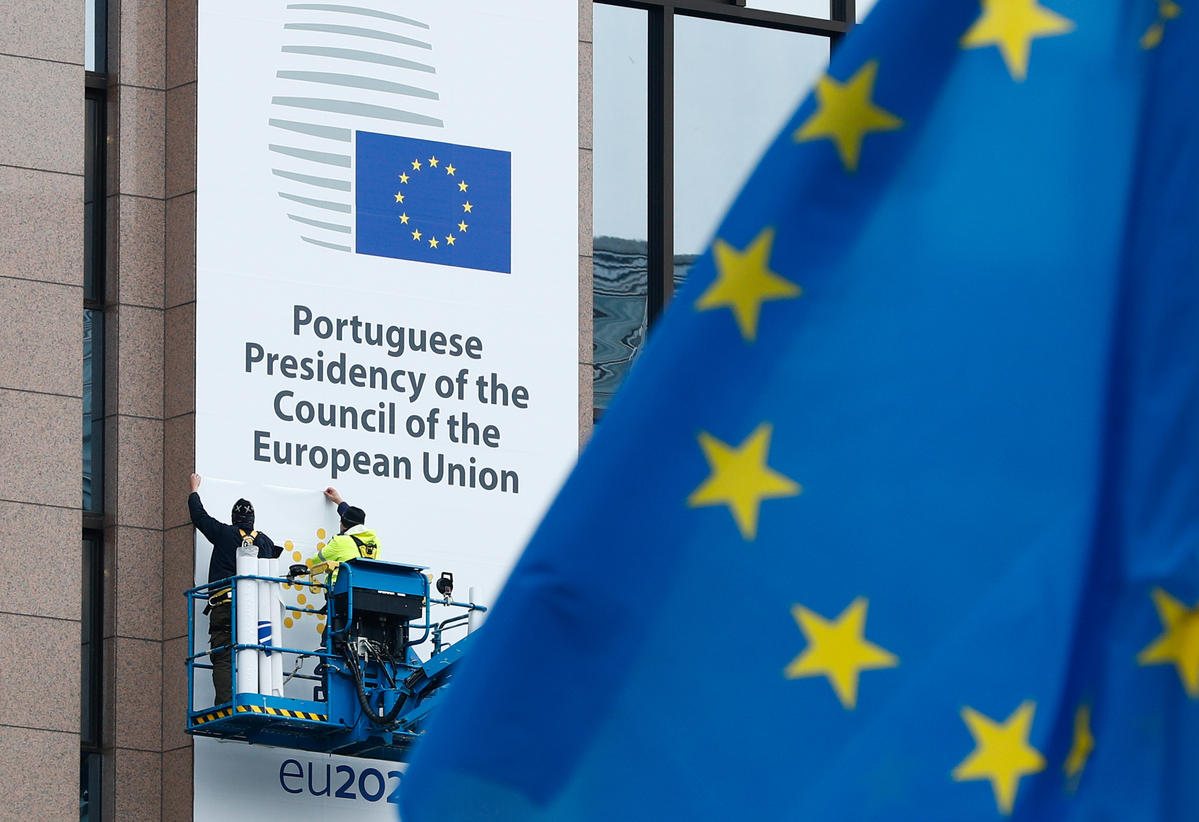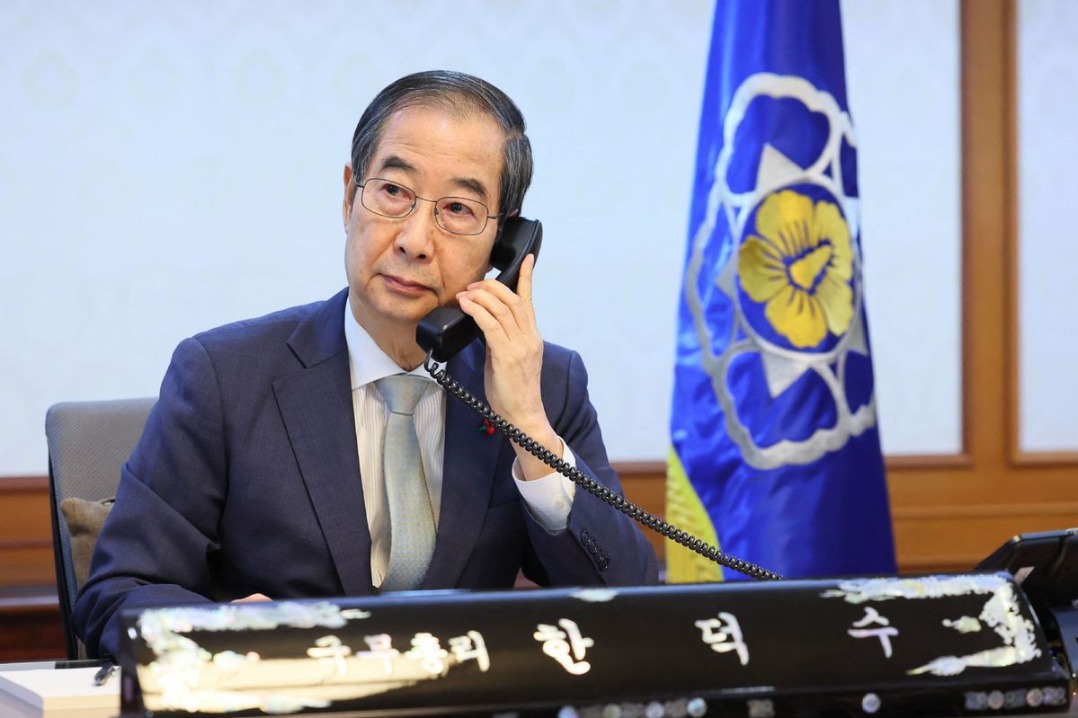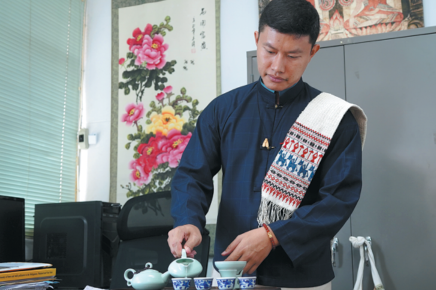Council sets 'strategic autonomy' of the EU as a priority


Reinforcing strategic autonomy is a major priority as Portugal assumes the presidency of the Council of the European Union for the first six months of this year.
Portuguese Prime Minister Antonio Costa said in a joint news conference with European Council President Charles Michel in Lisbon on Jan 5 that besides delivering a fair, green and digital recovery, another priority of its presidency is "to reinforce the strategic autonomy of a European Union open to the world" and a Europe that is a "global player" and "rejects protectionism".
Michel said the priorities "are perfectly in line" with the EU's medium-and long-term objectives.
He described the strategic autonomy as "the Europe which takes control of its destiny and which uses the instruments at its disposal".
Michel, a former Belgian prime minister, said that to realize this ambition, the EU must accept the full extent of its duties as a partner committed to multilateralism.
"It is our firm belief that international cooperation is the key to taking on the challenges facing the whole world," he said.
The Portuguese presidency has put an EU-India summit in May high on its agenda. It said that trade and investment relations with India, in particular the possibility of an investment protection agreement, will be important.
Michel said transatlantic relations are also on the agenda following the opportunity presented by recent US elections.
Three EU-based scholars-Nicoletta Pirozzi of the Rome-based Institute for International Affairs; Funda Tekin of the Berlin-based Institute for European Politics; and Ilke Toygur of the Madrid-based Elcano Royal Institute-said in a recommendation to the Portuguese presidency that even if a long-term strategy is needed to revitalize transatlantic relations, the first contact will be important for setting the tone.
"Europe knows that the golden days of transatlantic relations, when it could almost delegate their security to the US, are over. The relationship should be rebuilt on a more equal footing," they wrote.
Transatlantic relations have deteriorated under US President Donald Trump. For instance, the European Commission expressed "regrets" on Dec 31 over the US decision to impose tariffs on French and German products as part of a spat over aircraft manufacturers Airbus and Boeing.
The Portuguese presidency will also be the first to implement the free trade agreement with the United Kingdom following the conclusion of the deal at the end of December. Michel said a new relationship will need to be established.
"We must not of course forget our relations with Africa", Michel said, but conceded that there are still no plans to reschedule a high-level meeting between EU and African leaders. A videoconference between the two sides scheduled for Dec 9 was canceled at the last minute.
Insiders quoted by euractiv.com attributed the cancellation to disagreements over the agenda and the format of the meeting as well as Africa's lack of confidence in the partnership.
Portuguese Foreign Minister Augusto Santos Silva earlier indicated that under the Portuguese presidency, the EU will also try to relaunch dialogue with Latin America.
The presidency will seek to con-tribute to creating conditions for the signing of the EU-Mercosur Association Agreement and the modernized EU-Mexico Global Agreement. Mercosur refers to the four South American states of Argentina, Brazil, Paraguay and Uruguay.
The finalization of negotiations on the Comprehensive Agreement on Investment and the implementation of the Geographical Indications Agreement with China will also be a priority, according to the Portuguese presidency.
China and the EU concluded talks on the investment deal in principle on Dec 30 after 35 rounds lasting seven years.
"We have the agreement on investment with China. That's the whole issue of ratification now, of course, to consider over the next months," Michel said.
Portuguese Prime Minister Costa earlier dismissed criticism that the EU should consult with the US before wrapping up the talks with China, saying it would be "a terrible signal for us to block this negotiation or to condition this negotiation according to others".
"If Europe wants to be a global actor, as it has to be, its strategic autonomy depends on being able to speak with each of the other global actors," he said.
Jeffrey Sachs, a professor at Columbia University, said "the new EU-China investment deal will benefit Europe, China, the world, and even the United States, despite the latter's warning against it".
He praised the EU for "asserting its appropriate foreign-policy prerogatives independent of the US".































